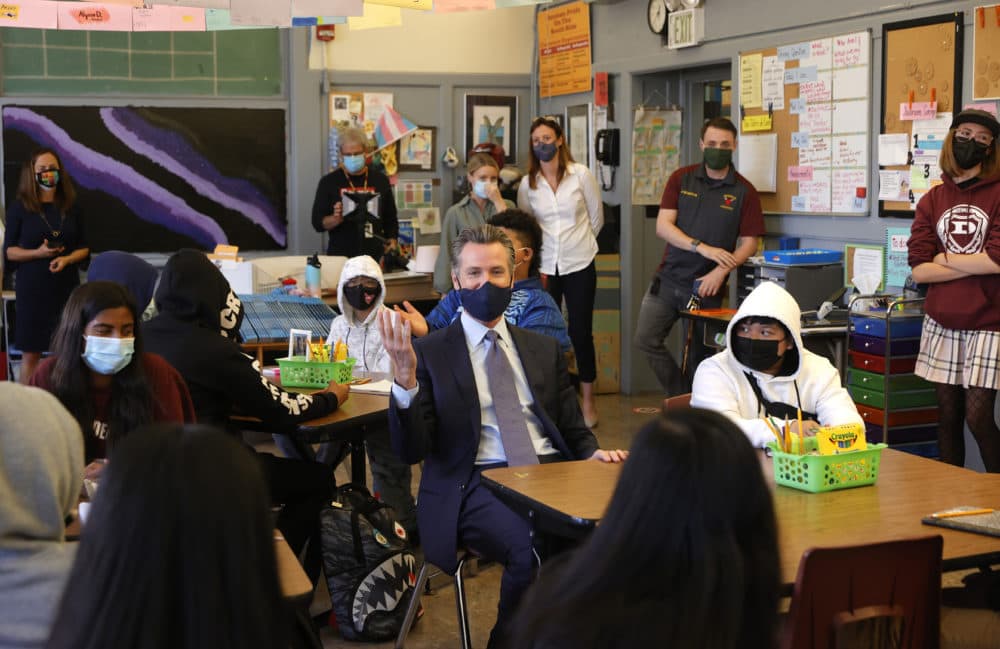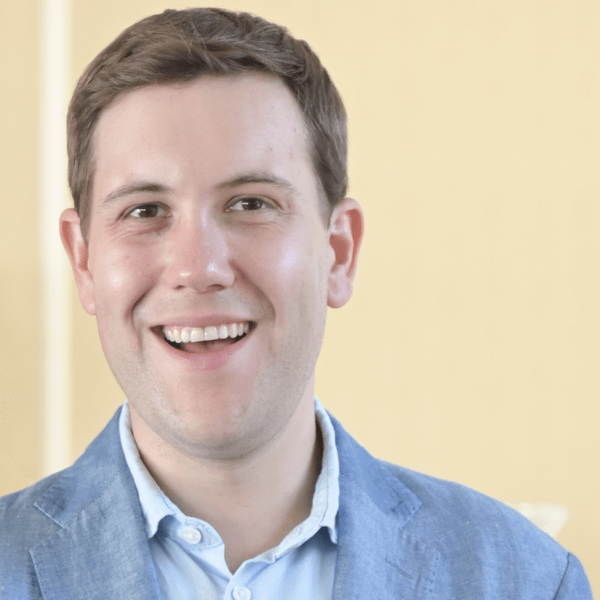Advertisement
What happens when American teens get more sleep

America’s teens aren’t sleeping nearly enough. Early school start times aren't helping.
"Because I have to get up so early, I'm still tired when I get home from school and end up falling asleep for three or four hours," Kayla, a high school freshman says.
"And I don't like falling asleep at that time because I want to do stuff and get my homework done and spend time with my family."
So some states are pushing back the school day, and starting later.
"Changing school start times is the single biggest policy change that can be made that can have, and has been shown to have a real impact," parenting journalist Lisa L. Lewis says.
But an impact on what, exactly?
Today, On Point: Synchronizing the teen body clock and school start times.
Guests
Lisa L. Lewis, parenting journalist. Author of The Sleep-Deprived Teen: Why Our Teenagers Are So Tired, and How Parents and Schools Can Help Them Thrive. (@LewisLisaL)
Also Featured
Amy and Stokeley Wexler, mother and son from Columbia, MO.
Zoe Lofgren, Democratic member of Congress from California. (@RepZoeLofgren)
Vivian Song Maritz, member of the Seattle Public Schools Board of Directors. (@viviansong)
Transcript: Rep. Zoe Lofgren On Her Political Fight To Better Understand Teen Sleep
This year, California became the first state in the country to issue a statewide mandate to push school start times back to 8:30 a.m.
MEGHNA CHAKRABARTI: Now, it should come as no surprise that California became the first state to do this, because one of its representatives has been banging the drum about teen sleep since the mid-1990s.
REP. ZOE LOFGREN: Actually, it was when my children became teenagers and my wonderful daughter, who was so responsible, and loved school and ended up being valedictorian of her high school class, all of a sudden ... she couldn't get up. And I thought, what is going on? Am I a bad mother? I mean, What's going on here?
CHAKRABARTI: That's California Democrat Representative Zoe Lofgren. She represents San Jose, parts of Silicon Valley, and further south toward Monterey Bay. Representative Lofgren says she started asking around, talking to researchers who at that time, again in the mid-90s, were just beginning to understand how different teens' sleep needs were from adult sleep needs.
Advertisement
Lofgren decided that later school times could be an effective way that government could ensure teens got more sleep. So in 1994, like any freshman congresswoman would do, she wrote a bill.
LOFGREN: I came up with the names, Z's to A's, to study the impact of early school time on adolescents and their sleep. And when the bill was introduced, it got a stir. I mean, people would call in from various radio shows and stimulate the discussion. And some school districts, you know, the Congress of the United States doesn't have the authority to tell schools what time they should start.
We do have the authority to study the issue, but a lot of school districts decided to change. And when they did, for example, in Minnesota, there were a lot of changes, and things improved.
CHAKRABARTI: To be clear, Representative Lofgren's proposal to study teen sleep and school start times did not pass in 1994. She's introduced it almost every year since. It still hasn't passed. But that doesn't bother Lofgren.
She says she's using the proposal more as a tool to generate awareness about the issue. Especially since back in the '90s, and now, Lofgren ... hears people balking at the idea that teens should sleep in.
LOFGREN: I can remember a couple of people saying, well, you know, kick them in the rear, get them up. And it's like, well, wait a minute. I mean, it's not easy being a teen. We all were at one time. And I think anything we can do to promote the health and safety of teenagers is a good thing.
There's controversy about changing it to a later date. But I can recall, when I was in high school, it didn't start at 7 a.m. And it just gradually got earlier and earlier. Nobody studied that.
Transcript: Inside Seattle's Struggle To Pick School Start Times
MEGHNA CHAKRABARTI: Prior to the state of California, Seattle schools were the biggest jurisdiction to mandate a later school start time. In 2016, Seattle Public High Schools moved their start time from 7:50 a.m. to 8:45 a.m. And it's a move that was widely embraced by parents and students, attracting the praise of sleep scientists and pediatricians.
However, earlier this year, Seattle Public Schools announced that it is considering a new schedule. One which could see some high schools start well before 8 a.m. So they're thinking about abandoning that later start time. Why?
Well, Vivian Song Maritz is a member of Seattle Public Schools Board of Directors, and she says the proposals to move start times back ... are driven by a very practical problem.
VIVIAN SONG MARITZ: We were desperately short of bus drivers, and it was challenging, operationally, to maintain the start times that we had, and offer the bus service that we wanted. So that caused the district to look into, Maybe we need to go back to different start times. And there was a lot of outcry in the community. Like, please don't change the middle and high school start times. We'd like that there later. But you know, we have to balance that with start times for elementary schools.
CHAKRABARTI: Now, fewer bus drivers means that those who remain, the drivers still on the jobs, have to do multiple rounds each morning. Now, that means school start times of would have to change. At least Vivian thinks so. And she says that while the board understands the arguments for keeping the later high school start times, she says there's a far more nuanced balance at play.
MARITZ: For our families that have older siblings caring for younger siblings, any change to start times is complicated. There could be a scenario where you've got 8:00 start time for middle school, 8:30 for high school. Because of bus transportation, or something else, now you've got elementary school that starts at nine.
What are those families who are counting on their high school students to take their younger siblings to elementary school? What will they do? Child care providers were telling me that children are going to school at 9:30, are we going to be expected to provide for for school care? We are having our own massive labor shortage issues. We will not be able to provide that.
CHAKRABARTI: Meanwhile, Vivian found that evidence in favor of the early high school start times in Seattle wasn't actually a slam dunk. So here's what she told us, that when the changes first went into effect, Seattle Public Schools, Seattle's Children's Hospital and the University of Washington worked together to study the impact of the changes.
MARITZ: The results have been inconclusive. Usually with a change like that, and the first and second year, the data is kind of mixed, because it's a transition time. And then kind of year two and three, three and four were pandemic years. For me personally, as a school board director, that was an important data point in consideration for potentially changing start times, that we don't have conclusive data.
CHAKRABARTI: And again, this is for Seattle specifically, and it's important to note what Vivian said, that the pandemic, basically, as we know, interrupted everything that had to do with schools. So who knows, maybe the data could pan out in the end. But as she says, as of this point in time, she doesn't believe it's conclusive. But in the end, the board decided not to change school schedules after all.
So Seattle is still going to have that later school start time for high school, but they had to do something. The bus problem did not go away. So instead the school board decided to operate reduced bus service. To keep the later start times, some kids now won't be able to take the bus to schools. The district just can't afford the multiple rounds. So Vivian says parents and school boards need to be honest with themselves about the tradeoffs they may need to make if they consider following Seattle's example.
MARITZ: I think that learning from Seattle's experience is that, all other considerations aside, is it wonderful to follow brain science and try to drive better academic outcomes, and reduce tardiness and absenteeism? Yes, I wholeheartedly agree with that. And I think any parent and educator instinctually understands how high school students are ... sleeping in the morning. It would be great to give them more sleep so that they're primed for learning. And yet in a school district, there are always a myriad of other considerations, financial considerations, logistical considerations. And I don't know that the answer is so straightforward.
This program aired on August 3, 2022.

